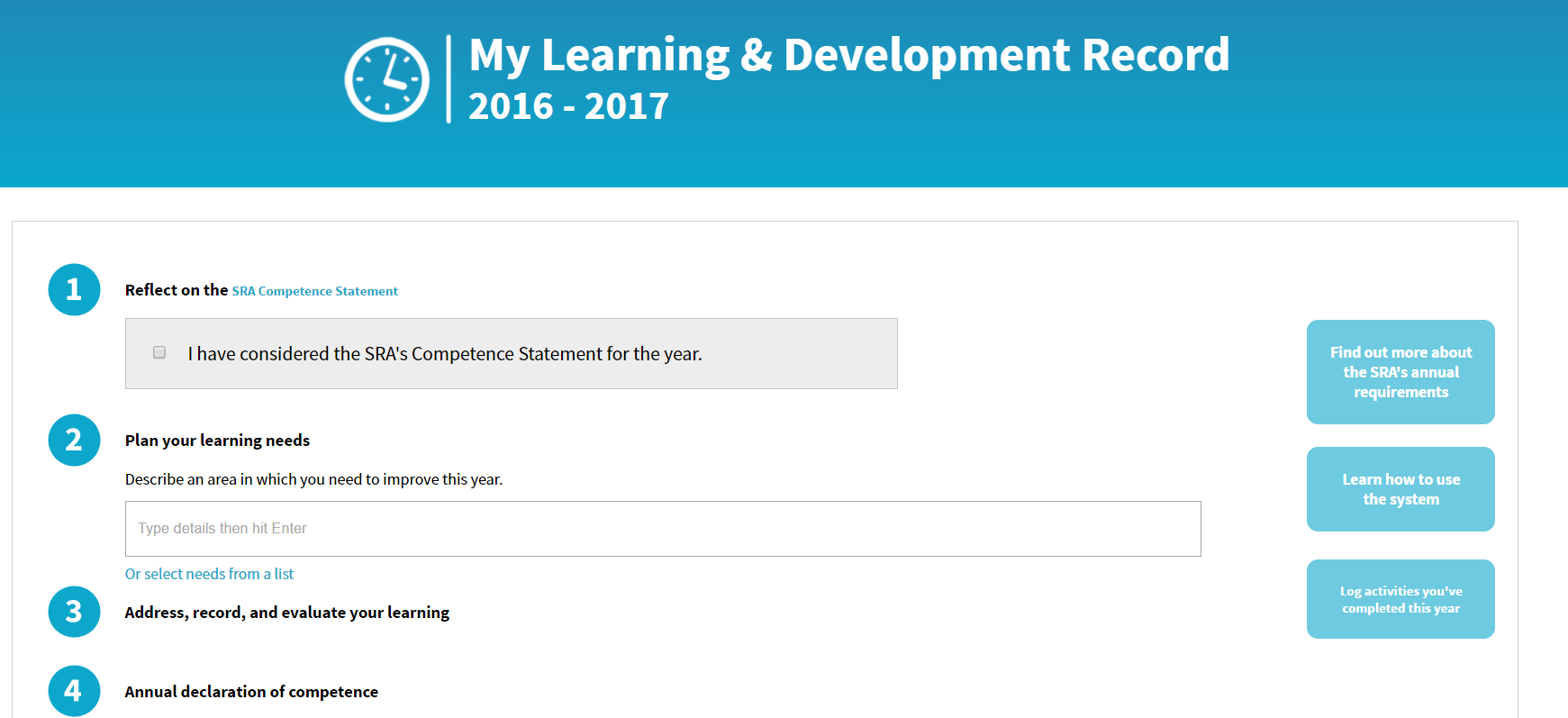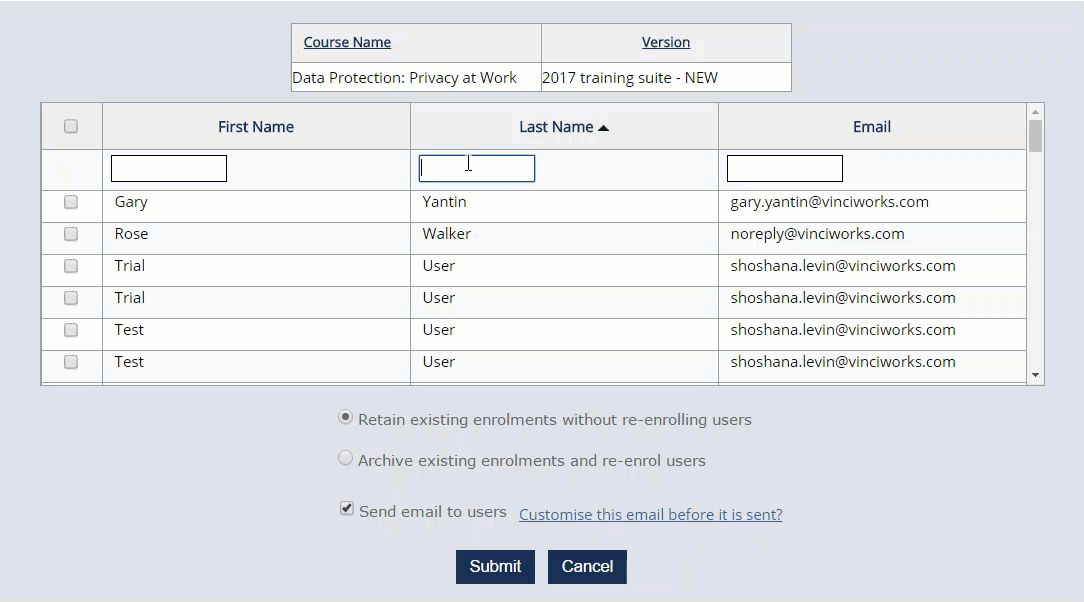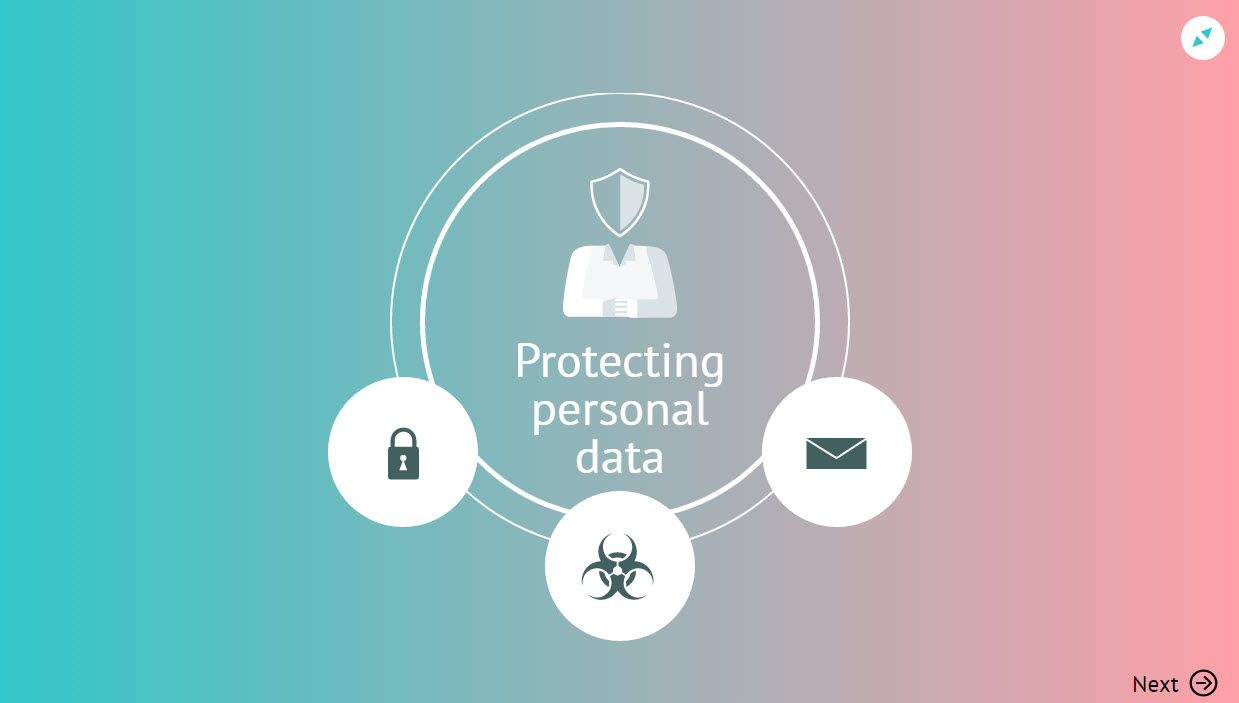New advanced course — Modern Slavery: Practical Steps for Procurement coming in 2017

VinciWorks’ first course on the Modern Slavery Act, Modern Slavery: Preventing Exploitation, focuses on giving staff a broad overview and introduction to forced labour and other abuses that the new Act was designed to tackle. Our next Modern Slavery Act course is at an advanced level aimed at those who have already completed the introductory […]
New LMS security feature: force users to reset password on next login

Administrators can now force any user to reset their password when they next login to the Learning Management System (LMS). This is useful in a variety of cases, such as: If you add a user with a temporary password If a user has a very simple password that you would like them to change Periodic […]
New CCM feature: deep-link direct to Continuing Competence Module

Firms that license the Continuing Competence Module (CCM) now have the ability to create a separate login page for the CCM. This enables firms to create a fully immersive continuing competence experience that is separate from regular online training. On the ‘competence only’ login page, users focus on the reflection and planning stages of their […]
New LMS feature: tick-box selections retained through multiple searches

Searching and filtering in the LMS is now much more powerful. Administrators can perform multiple searches, make selections and perform actions on those selections. The LMS retains selections throughout multiple searches. How to take advantage of this feature One common way to use this feature is for enrolling multiple users in a course. You can […]
General Data Protection Regulation 2018 – a primer
The General Data Protection Regulation (GDPR) is the new EU-wide law that comes into force from 25 May 2016. As this is a piece of EU legislation, there is now uncertainty about whether the regulation will be adopted in the UK, or whether the UK government will produce its own version. But even if the […]
Are we winning the battle against bribery?
Ernst & Young released their Global Fraud Survey at the end of 2016. What can we learn from this research into 2,800 senior executives, spanning 62 countries? The good news is that most respondents view fighting corruption as a priority, with 91% stating that it’s important to know the ‘ultimate beneficial ownership of the entities […]
Our new data protection course is now available

Data Protection: Privacy at Work VinciWorks has just released the only data protection course your company needs. This course combines the latest in policy and law with best practice guidelines for data protection. It provides real-world scenarios, interactive features and review questions to test participants’ understanding of key points. To begin, an interactive game will guide users […]
Beat the New Year Blues
The Christmas and New Year break tends to be a time when we take stock of our lives – and employers can find that staff have spent the holidays brooding over problems at work or even dusting off the cv and looking for a new job. So what can organisations do to make sure everyone’s on board.
Section 54 of the Modern Slavery Act

Section 54 – What Does It Mean For My Business? The Modern Slavery Act has been in force for little over a year. Some large corporations are already finding it difficult to keep track of modern slavery in their supply chains. For example, in June 2016, farmers Jaqueline Judge and Darrell Houghton were found guilty […]






